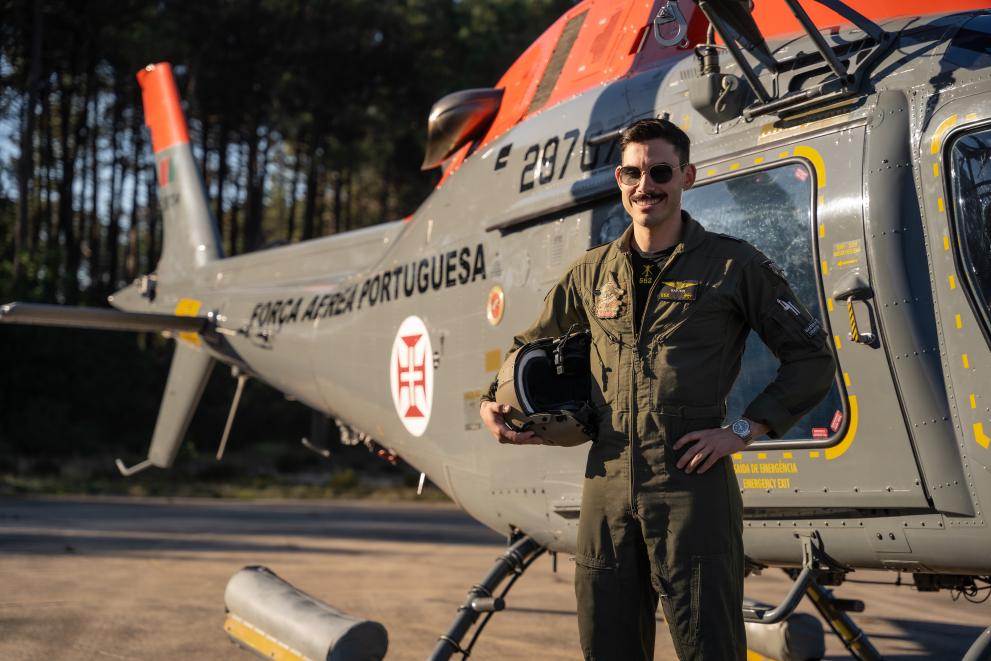
Under NextGenerationEU, Portugal has been making sweeping nationwide investments to modernise infrastructure, create jobs and address social and environmental challenges. Worth a total of €22.2 billion, the country’s Recovery and Resilience Plan (RRP) has seen funds channelled towards a multitude of projects, among which a large-scale investment in resources to combat rural forest fires, a growing problem in the Atlantic nation. The EU’s €89,000,000 contribution has resulted in the construction or renovation of operation centres and the procurement of firefighter helicopters, machinery, vehicles and vital equipment.
Needless to say, the investments have been well received. Among EU Member States, Portugal is the country that experiences the highest average number of forest fires annually and suffers the largest share of burnt area as a result. This has made boosting the country’s resources to combat and protect against such threats particularly pressing. Thanks to government and EU funding, the country’s air force has been able to acquire five light bomber and six medium bomber helicopters, which are being used to support and coordinate fire suppression. Additional aircraft will be delivered in 2026, further enhancing capacities.
To learn more, we spoke with Captain Pedro Bola of the Portuguese Air Force, who shared his thoughts:
Has the procurement of new aircraft improved firefighting efforts?
PB: Undoubtedly. The investment in new aerial assets has strengthened our fleet and made firefighting safer and more effective for those of us active in the field. I work as a captain with Squadron 552 of the Portuguese Air Force. Our unit is responsible for air coordination and firefighting efforts when wildfires break out, which have sadly become a more frequent occurrence in recent years. Additional funding has enabled us to acquire AW119 Koala helicopters, which feature state-of-the-art technology and enable first-rate aerial recognition and coordination in forest fire scenarios. With more helicopters on the fleet, we are more prepared than ever.
“The investment in new aerial assets has strengthened our fleet and made firefighting safer and more effective.”
– Captain Pedro Bola, Portuguese Air Force
Why is investment in such resources crucial?
PB: Investment in firefighting capacities helps us prevent natural disasters from reaching truly catastrophic proportions. Ultimately, with greater resources, we can intervene faster and more efficiently alongside ground units, and this saves lives and prevents our land from becoming scorched. If our capacities are limited, it goes without saying that our ability to contain and combat a forest fire is greatly reduced, leaving people’s lives and homes – as well as those of local wildlife – at great risk. Our unit’s contribution to firefighting efforts has been enhanced by the acquisition of new aerial assets, and this can only be achieved if sufficient funds are made available.
“EU funds have been instrumental in boosting our resources of late.”
– Captain Pedro Bola, Portuguese Air Force
Is EU funding important when it comes to fire suppression efforts?
EU funds have been instrumental in boosting our resources of late. The Portuguese Air Force is an independent branch of the Portuguese Armed Forces and therefore depends on state funding for operations and maintenance. The EU can make sizeable contributions in this area, and this has been the case through our country’s RRP. Given how common wildfires have become at certain times of year, I believe we need to continue boosting investment. Providing more resources for both air and ground fleets will help us coordinate better and manage forest fires more effectively. EU funding is already an important component of this.
As Pedro asserts, investment in air support through NextGenerationEU offers a real boon to firefighting efforts in Portugal. Though it is just one of many areas the country has chosen to prioritise with its RRP, it is increasingly important, with wildfires ravaging rural areas year on year. Boosting capacities through the acquisition of aerial assets will not only facilitate cooperation between air and ground units and make fire suppression more efficient, it will save lives and protect livelihoods. Further still, it demonstrates the country’s commitment to tackling this issue head on, for the benefit of Portuguese society and the environment at large.
Details
- Publication date
- 16 April 2025
- Author
- Directorate-General for Communication
- Location
- Portugal
